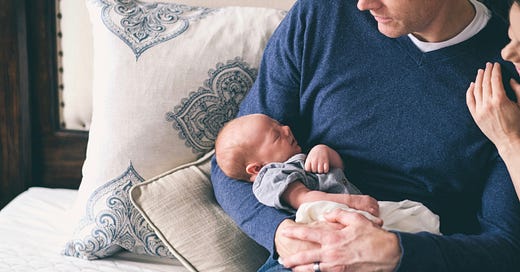Children's Justice Is Not About Parents
Change the system, not just the individual.
Children’s Justice is not about merely changing individual parents, but changing the larger systems and institutions those parents interact with.
Many parents report becoming tense and vigilant during hospital birth to make sure the hospital does not engage in unnecessary procedures they do not want, such as caesarian section or circumcision. While this might protect their child, Children’s Justice asks: why do these parents feel they have to be vigilant in the first place?
Other parents are concerned with what their children are being taught in government schools. They attend school board meetings and engage in activism to remove material from school curriculums that they feel teaches harmful ideas. While these efforts sometimes change school curriculum, Children’s Justice asks: why is the government making their children learn certain ideas?
Some parents do not even get to stay home with their young children. Both parents have to work and it is more economical for the parents to spend their time at jobs while the job of raising their children is outsourced to daycare. While it is possible for parents to achieve an economic situation that allows them to stay at home with their children, Children’s Justice asks: why does our current economic system separate children from their parents?
Yes, it is possible for individual parents to resist all of these systems. The real question is how did they get into a bad system in the first place? Is it possible to change the system as a whole rather than placing the burden of resistance on each individual parent, who is already handling so much?
These systems often consciously try to trick parents trying to opt-out of them. For example, food companies will label processed food as having “natural flavors” when there is nothing natural about them. Parents wanting to feed their children a healthy diet not only have to be aware of what constitutes a good diet but be aware of the various ways the system will attempt to trick and trap them.
An individual framework for resistance asks a lot of parents. In order to avoid harmful systems, parents are basically required to become amateur experts in a range of fields from food science to educational theory. This is an unreasonable demand for most parents. At some point, it is actually easier to change the entire system, even for the parents with the resources to opt-out or resist.
Even alternative parenting advice, such as peaceful parenting, natural birth, homeschooling, etc. often frames change as the responsibility of individual parents. When parents hear of these options, some become defensive because they lack the time or resources to make these changes even if they might find them desirable.
Children’s Justice recognizes the pressures that these larger systems place on parents, and holds each person who is complicit in the system accountable for their role in that system. While individual change can be beneficial and empowering, Children’s Justice is not about parents alone, but change for all systems that impact children.
To learn more, read Children’s Justice.




